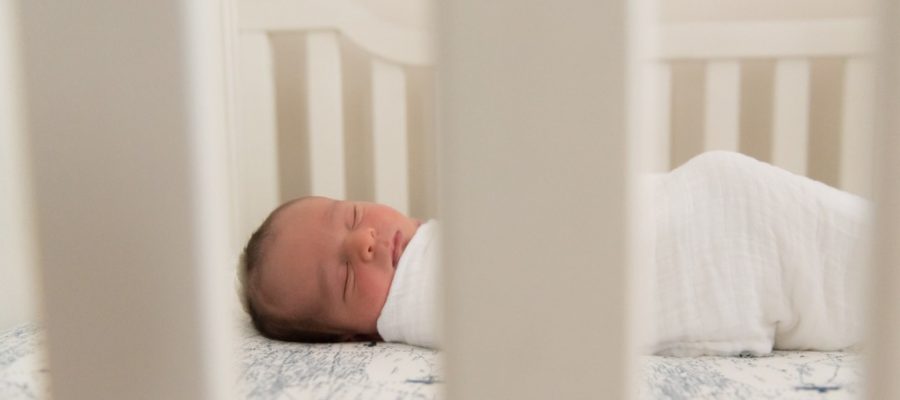The American Academy of Pediatrics (AAP) is once again sounding the alarm on weighted swaddles and weighted sleep sacks for babies. Their safe sleep guidelines — which help reduce the risk of sudden infant death syndrome (SIDS) — discourage the use of weighted sleepwear, and now the association is hoping others will study the products’ safety too.
The AAP sent a letter to the United States Consumer Product Safety Commission (CPSC) and ASTM International this month saying the potentially fatal products could hypothetically make it harder for babies to wake up in response to hazards like a lack of oxygen. There is currently no definitive peer-reviewed research surrounding the products.
In a preliminary, inconclusive study commissioned by Nested Bean — a top retailer of weighted sleep products for babies (the other being Dreamland Baby) — researchers found that the products were associated with reductions in oxygen saturation levels in the five infants who were involved in the study. The tests were only conducted for two minutes, which concerns Dr. Rachel Moon, MD chair of the AAP’s task force on SIDS.
“It’s not the level, it’s the trend I’m worried about,” Dr. Moon said. “Why didn’t they let it go more than two minutes? You’d want to know what’s happening over 30 minutes, two hours.”
In their letter, the AAP said that parents expect that products on the market at reputable retailers are safe. And so, they encouraged the CPSC and ASTM International to take “a precautionary approach” to weighted swaddles and weighted sleep sacks “to avoid a repeat of what happened with inclined sleepers, in-bed sleepers, and other novel sleep-related products.”
“These products ultimately were associated with over 100 infants’ deaths—all of which would have been prevented if these products were not kept on the consumer market,” the letter said. “Waiting for the emergence of confirmatory data about these concerns while these products proliferate is an unacceptable outcome when each of those data points will be a family whose lives are forever marked by unfathomable tragedy of their infant dying from a sleep-related death.”
Dreamland Baby and Nested Bean have maintained the safety of their products. Manasi Gangan, founder and president of Nested Bean, said she hopes the AAP will change its position once the products are researched more thoroughly.
“The AAP has taken — and I understand why — an extremely conservative approach toward weighted blankets because of the popularity it has gained,” she said.
Tara Williams, founder and CEO of Dreamland Baby, called the AAP’s concerns “speculative.” She is currently co-chairing an effort to create voluntary safety standards surrounding swaddles and sleep sacks through ASTM International since there are currently no federal requirements or regulations. This effort involves industry representatives, consumer advocates, medical experts, and CPSC staff members coming together to examine the safety of weighted and non-weighted swaddles and sleep sacks.
While that may sound like a good thing, the AAP finds it worrisome.
“[We are] concerned that ongoing efforts to develop a voluntary safety standard for these weighted infant products through ASTM International will send parents and caregivers the incorrect message that these unnecessary products are safe,” they wrote. “…While voluntary standards are appropriate for certain products, given [our] clear policy regarding the danger of weighted infant sleep products, we oppose the development of any voluntary standard for these products.”
ASTM International said in an email it would give the AAP’s letter “due consideration.”
Alex Hoehn-Saric, the chair of the CPSC, said in a statement that the agency “is taking a close look at these weighted products as part of a larger examination of wearable blankets.” He then said parents should consult with their pediatrician before buying products that claim to improve their baby’s health or sleep, and he urged parents to “shop carefully.”
Doctors on the AAP’s task force on SIDS insist that more rigorous, peer-reviewed research is needed, and it’s needed now.
“You should prove safety before you put a product out there,” said Dr. Michael Goodstein, MD a member of the task force. “You shouldn’t be proving it after kids die.”
Source: Read Full Article

